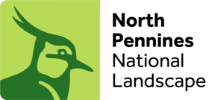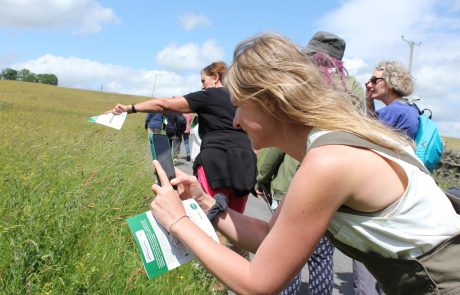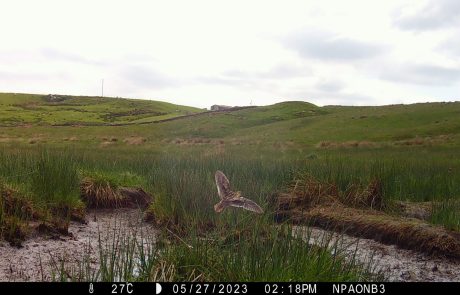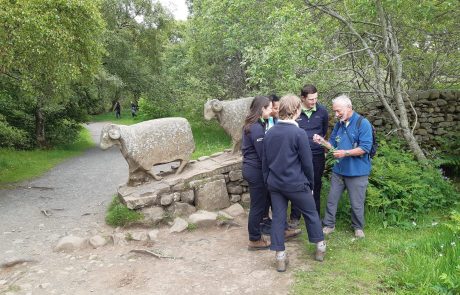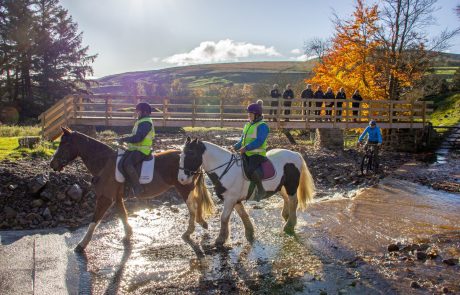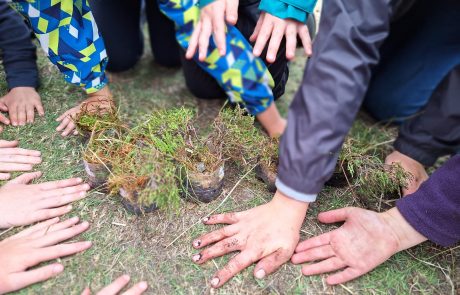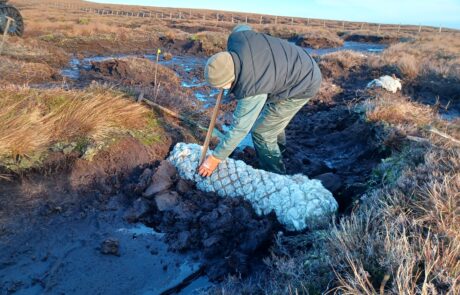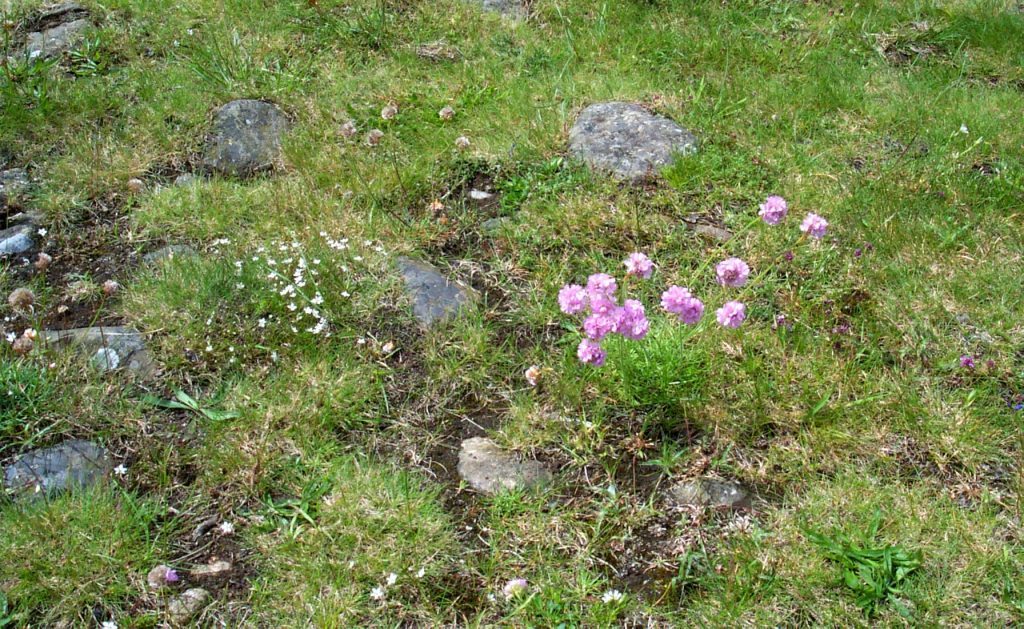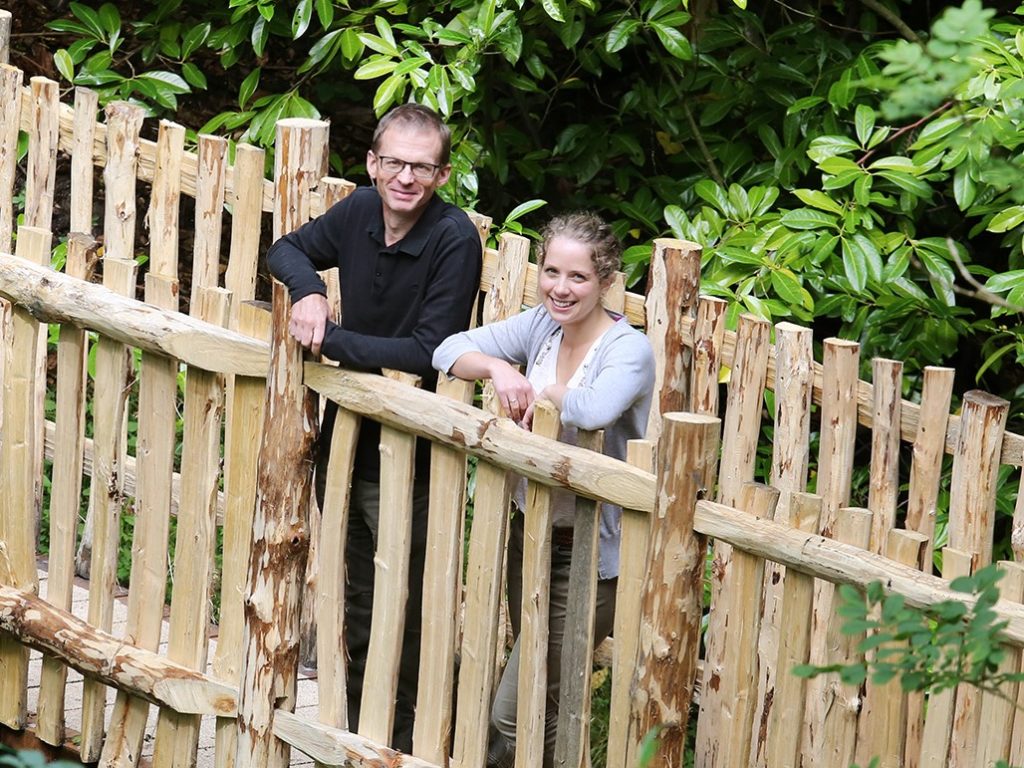What we do
Delivering Tees-Swale
The Tees-Swale: Naturally Connected programme was inspired by Making Space for Nature (the ‘Lawton Report’). Published following a review commissioned by the government and chaired by Professor Sir John Lawton, the principles in the report – the need for England’s ecological network to be bigger, better and more joined up – form the heart Tees-Swale: Naturally Connected programme, the board of which is chaired by Sir John:
“In the northern Pennines, the Yorkshire Dales National Park and the North Pennines National Landscape together cover the largest expanse of semi-natural habitats in England. Upper Teesdale and Swaledale sit at the heart of this ecological network.
During a rich and varied history of human occupation covering several thousand years, this place has been modified and nurtured by farmers and landowners. From the steep-sided valley of Swaledale in the south, with its iconic hay-barns set in flower-rich upland hay meadows, to the more open landscapes of Teesdale in the north, with its precious and unique flora, and much else in between.
Today these landscapes offer local people and visitors not only stunning scenery but some extraordinary wildlife. But (imperceptibly to many people) this natural heritage, and the high-nature value farming systems that have sustained it are under threat, in the face of economic pressures and an uncertain future. Their remoteness does not make them immune to the climate and biodiversity crisis, which faces the whole world. If – as a nation – we are to hold on to nature, and support its recovery, this is where we must start — and on a transformational scale.”
Professor Sir John Lawton CBE FRS
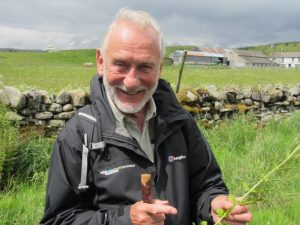
The programme has four aims:
• to promote and support farming and land-management practices that are both economically viable and lead naturally to nature recovery on a grand scale
• to share knowledge and expertise between farmers, landowners, land managers, and conservation agencies
• to engage local communities so that they can help shape and share a common vision for the area’s natural heritage
• to reach out to visitors and new audiences (particularly those who live in nearby towns and cities), who, through getting involved in activities of all kinds, can increase their appreciation and care for these wonderful landscapes and the people who live and work here.
Read the Tees-Swale: Naturally Connected programme plan here.
Progress
Currently, just over halfway through the five and a half years of the programme, our achievements include:
- Over 140ha of species-rich grassland restored or enhanced – ensuring the continuation of this important habitat
- Over 50ha of woodland creation and enhancement – connecting areas of woodland and increasing the resilience of the landscape
- Over 1,900m of hedgerows planted – creating intensely biodiverse habitats
- Over 750 ha of peatland restored – helping to capture carbon and slow the flow from the uplands
- Over 60 scrapes and ponds created – providing ‘steeping stones’ for invertebrates and improving the habitat for wading birds, such as lapwing and curlew
- Twelve trainees have benefitted from traineeships – helping them into roles within the conservation sector. Over the coming year, another three trainees will undertake traineeships with us – two based in the North Pennines and one in the Yorkshire Dales.
- We are working with thirteen schools in the Tees-Swale area and from surrounding towns – giving young people the chance to experience learning in the outdoors and develop their understanding of farming and nature.
- Seventeen routes are being improved through the Tees-Swale programme. In Swaledale and Arkengarthdale, the programme is funding the National Park Authority’s delivery of improvements, including the replacement of Slei Gill bridge, washed away in the 2019 flood. In Teesdale, improvements are being delivered through a contractor.
